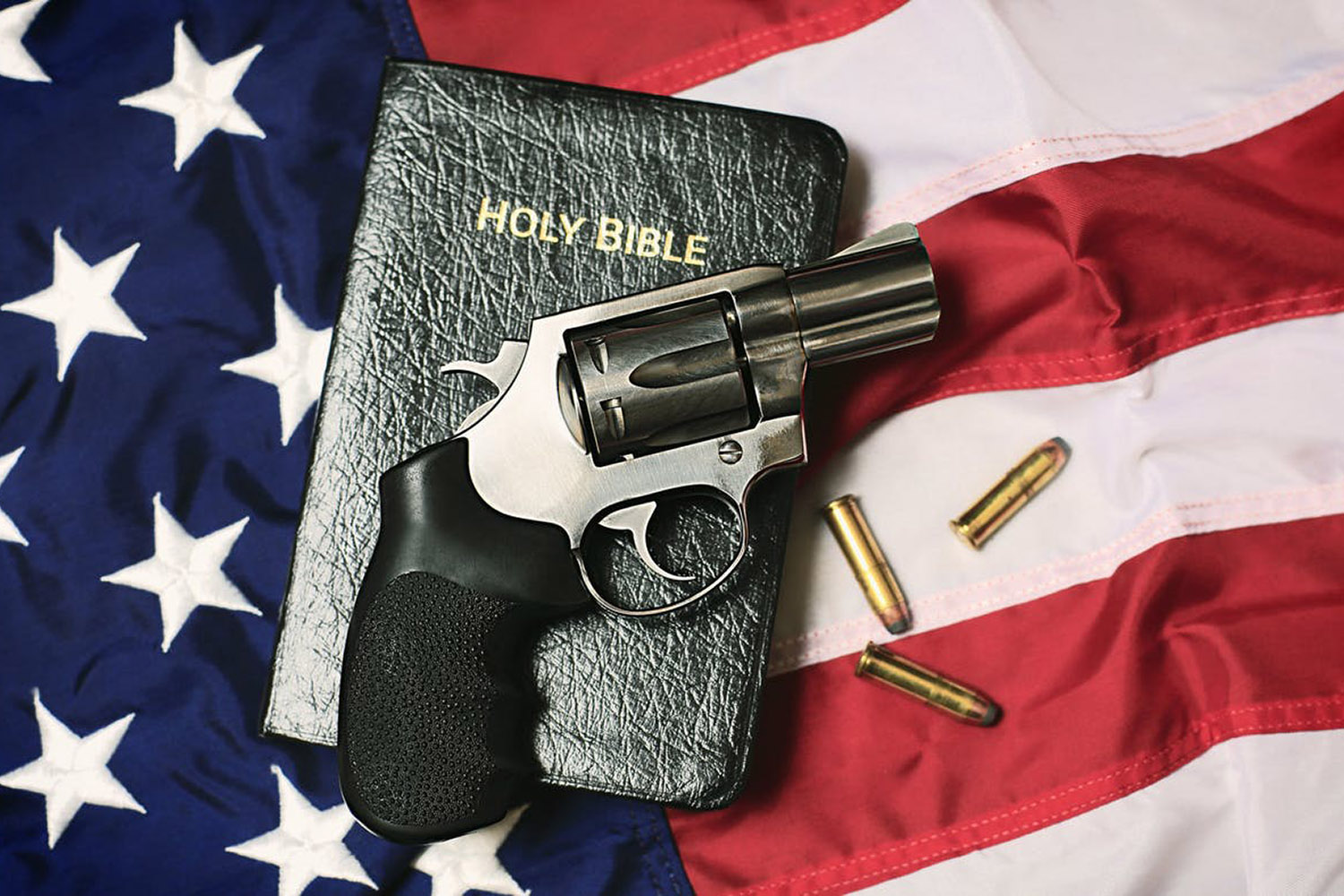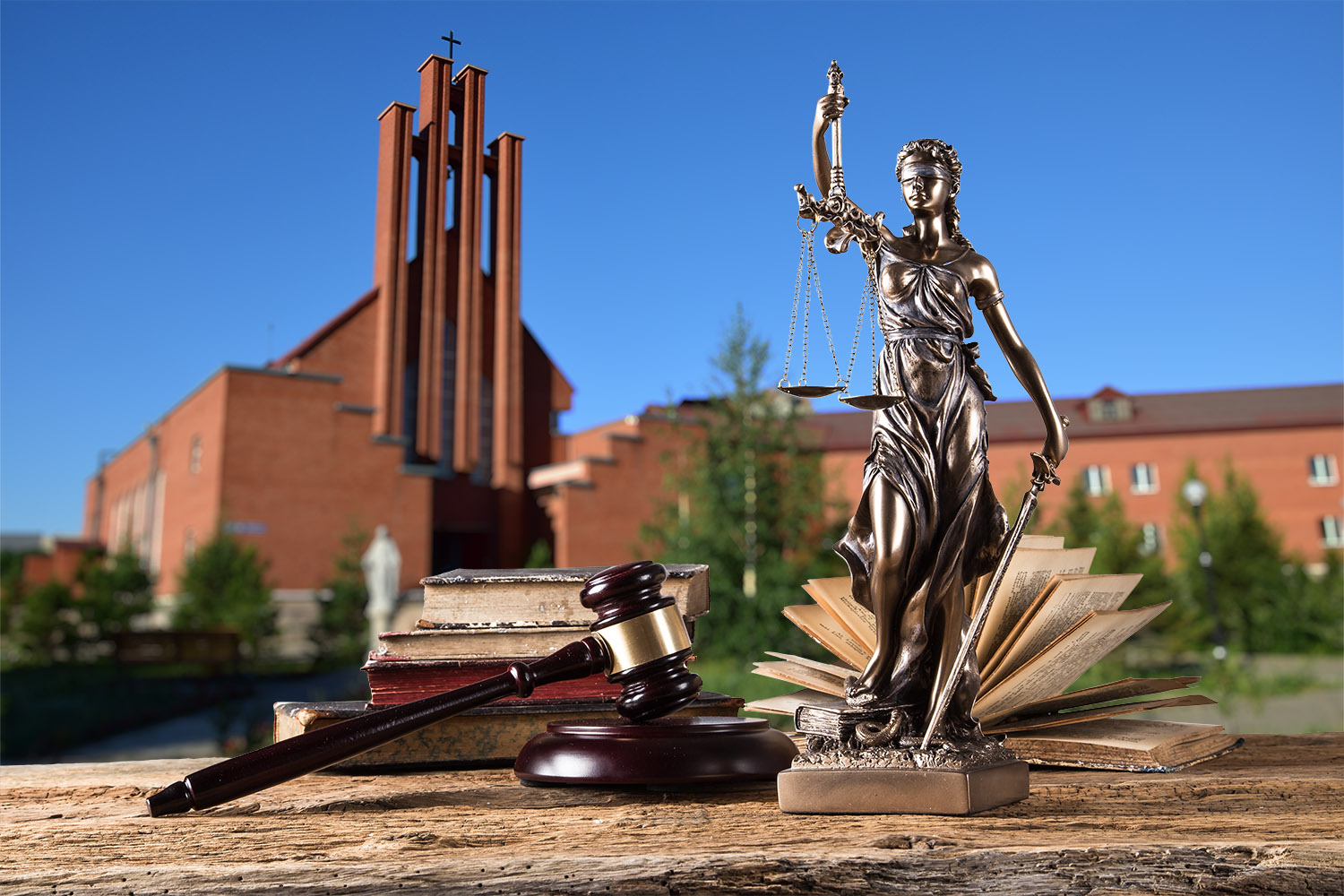Do you care to touch on gun control some? I struggle with the concept of the “enabler” theory, where we should not enable evil people by being a doormat, and the words of Jesus “resist not evil”…
so what would be your stance or counsel, should the gov’t ever come to take my/your guns away? – we live in bear country up here in Alaska and I am out in the wilderness all the time and rely on my guns heavily! Any help at all for us?
G
While this question may seem straightforward, it is actually quite complex with many layers. This question involves issues related to the practice of love, coercion/control, force/power, also it relates to how we relate to civil authority and the purpose of having a gun, or is it even “right” for a Christian to possess a gun?
Issue one: Should a Christian possess a gun? If we use the Bible as our example, I find no directive from Scripture that possession of a weapon or weapons is sinful or wrong. Most of the Old Testament “heroes” carried the weapon of the day. Even Peter carried a sword and Jesus never told him to get rid of the sword. Jesus only chastised him for using a sword to promote his way, hurt others, dominate, coerce, control etc.
Therefore, I don’t find anything sinful in possessing a weapon. The question is not in possession, but in its use. Many people collect knives, antique guns, ancient weaponry and modern guns. So, as I understand it, there is no sin in possession of a gun – assuming, of course, it is done legally.
Issue two: Should Christians use “might and power” or “force” to oppose evil? This question continues to be hotly debated within Christianity. The Enemy Enigma on GodsCharacter.com explores the question of lethal force being used by Christians, such as fighting in the army against Hitler, etc. Some make the argument of “just” use of violent methods, or “just war.” But others argue that nowhere in the teachings of Jesus will one find justification for “just” violence. They contend that Jesus taught only passive measures of love and truth.
A few years ago I was in south Florida doing some programs and was discussing these issues with the man driving me from venue to venue. I was presenting the idea of selfless love, loving our enemies, turning the other cheek, when he said, “I don’t know about all that. If an out-of-his-mind drug addict broke into my home and was threatening my wife and children and I had a gun, I would shoot him.”
I said, “Okay, let’s use that example. Say a 19-year-old man, high and out of his mind on drugs, rushes into your home with a knife and is threatening your wife and children, and you have a gun, but the 19 year-old is your first-born son, what do you do then?”
He said, “I don’t like you very much.” This is God’s position to all humans. We are all His children and He doesn’t want to destroy any of us. If your son was threatening your family and you had a gun, what would you do? If you shot, would it be to kill, or to wound? And why would you shoot to wound –to destroy or to redeem, to save, to reclaim your wayward child?
If this was your 19 year-old son, would you be concerned for his eternal soul? Would you want to stop him from hurting your wife and other children, not only to protect them, but to protect your 19 year-old from the devastating consequences to his mind, character and soul if he, in a drug-induced stupor, did injury to his own family? If you were that 19 year-old, would you want someone to use force to stop you?
What about Andrea Yates, the mother who, in a post partum psychosis, believing demons were coming to destroy her children, drown them all. Do you think, when she came to her senses, that she would have preferred someone had realized what she was doing and used force to stop her, not kill her, but restrain her and heal her?
In this world of sin there can be a place for the use of force, but not to destroy, only to protect. In psychiatry we often have patients who are psychotic and violent. In love we will “restrain” them, but for what purpose? To provide treatment in order to restore the person to “self-control” and then set them free. God has used methods of might and power, but always as a means of redemption, never to eternally destroy.
How does this apply to gun ownership? If we have a gun to protect us from wild animals in a hostile environment, or to save and protect, even for the protection of the person who is threatening, there can be a place for this. But Christians are not to have hearts which seek to harm, to kill, to destroy, but hearts which seek to sacrifice self in order to protect and save others.
A recent review of sunken ships revealed that the slower the ship sank, the more able-bodied men drown, but the faster the ship sank the less-able bodied men drown and the more women and children drown. This indicates in crisis, without time to think, the survival-of-the-fittest (selfish) instinct fires and we react to save self. But, when time for reflection is allowed, selfless sacrifice overrules the desire to save self.
The problem with gun ownership is that in a moment of crisis our carnal reflexes of self preservation react quickly and we might use the gun to “protect self” and hurt another. Whereas, altruistic self-sacrifice takes time to process the fear and selfish instincts and choose to give self in love. Guns diminish reaction time increasing the likelihood that selfishness will be the course.
Third: The relationship to the state: We are instructed in God’s word to obey the state where the state doesn’t contradict God’s law. If the state passes gun control laws, we, as Christians, are obligated to obey such laws. I know of no inspired writing in which God requires people to bear arms.
Finally, let’s ask the question: “In whom do you trust?” As Christians, we are to be growing in our personal relationship with God such that we trust Him with our lives, family, fortune, and future. King David was chastised for taking a census. Why? Because once David had numbered his spearmen, bowmen, foot soldiers, chariots and horsemen, he would be tempted to place his confidence in human strength rather than in God. We face similar temptations today primarily when we place our trust and security in stocks, savings, bonds, gold, retirement plans and sometimes guns. Our only real security is in God and, as we come to know Him more and more fully, we experience less and less of a need to “watch out” for self and trust Him with our future. We don’t act from impulse or presumption, but wisely and prudently follow God’s methods in the fulfillment of our duties and trust Him with the outcome.










 using your credit or debit card (no PayPal account needed, unless you want to set up a monthly, recurring payment).
using your credit or debit card (no PayPal account needed, unless you want to set up a monthly, recurring payment). instead?
instead?